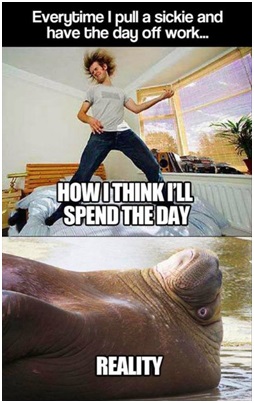A Coaching Power Tool Created by Carolynn Stoddard
(Life Coach, UNITED STATES)
In all areas of our lives we hold events, other people, and ourselves to a certain expectation. This happens with relationships, schooling, vacation or trips, life milestones, and even simpler everyday tasks. When we do this, we then are able to judge whether these events have met, exceeded, or disappointed us in some way. This often times happens when it comes to our friendships and relationships. Family, friends, and colleagues affect who we are, and how we grow throughout our lives.
Expectations are our own imagination, or scripted versions of what we either hope will happen, or what we fear may happen in a given situation. Take for example a date, or getting your degree, marriage, or how you and your friends are when going on a vacation. There is a heightened sense of thrill, excitement, achievement, or we’re going to have “the best time ever” feeling. However, if that isn’t met then what happens is a disappointed feeling. Questions arise of whether you are suited for the other person, whether your friend should stay in your life or not, whether you should continue on the career or degree path you are on.
If one holds to their expectation of what will happen, they may miss allowing opportunities of what could happen or opening themselves up to new revelations about themselves or another person. This is not to say that people shouldn’t hold themselves to an expectation they find suitable, such as how others treat them, or how much stress at work they are willing to undertake. This expectation is one that humans place upon another to satisfy his or her emotional needs. To put this into perspective, I’ll present a scenario in which the expectation got in the way of allowance.
 Dating and finding a partner is an exciting time, for some nerve wracking, and for others a very fluid way of seeing who is a good fit or not. Heather had a very strict list that she adhered to for who her ideal mate was. This list was rather lengthy, but with good reason, she thought to herself. She didn’t want to get into a bad relationship that those she dealt with before. She had her mind set on whom this dream guy was. Heather did online dating, speed dating, and tried to have friends fix her up. Unfortunately, these didn’t result in any favorable relationships. The guys she had met fell short of her list.
Dating and finding a partner is an exciting time, for some nerve wracking, and for others a very fluid way of seeing who is a good fit or not. Heather had a very strict list that she adhered to for who her ideal mate was. This list was rather lengthy, but with good reason, she thought to herself. She didn’t want to get into a bad relationship that those she dealt with before. She had her mind set on whom this dream guy was. Heather did online dating, speed dating, and tried to have friends fix her up. Unfortunately, these didn’t result in any favorable relationships. The guys she had met fell short of her list.
Her wants alone limited her “best matches” on online sites by hundreds of potential partners. Heather continued on, frustrated and disappointed that there were no prospects. After weeks of coaching, and working on letting go of these expectations of swept away romance, especially for a first or second date. Heather started to open up her perspective. By allowing herself to let go of any preconceived ideas, she was able to open herself up to so many wonderful guys in the area. Once she did she was able to allow dates to flow at will, and to progress in a more natural state, rather than feel rigid and uptight about whom she was meeting.
As part of this power tool of expectation vs. allowance, some coaching tools to use, how to open clients up to the “now”, to present situations, without too many preconceived ideas, is to start with “The Work” of Byron Katie. Asking 4 questions would be one good place to start.
What Can The Coach Start With
Get to the core of what the client is really looking for in a relationship, career, degree, etc…
The most important goal for letting go of expectations is to allow for things to come as they will, and take what you can to learn from them. Even in regards to things you don’t want, you learn with more clarity what you do want. Heather was able to get over her dating hurdles through opening up to new possibilities. People come from all different life paths, and perhaps those people may help you grow as a person and teach you about yourself and their experiences.
